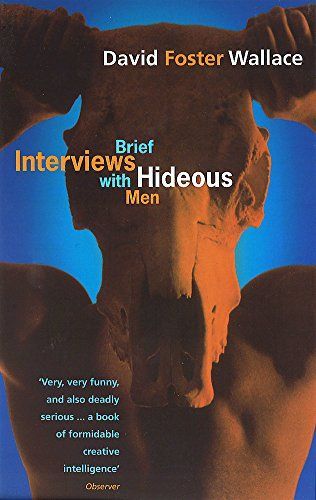
Brief Interviews with Hideous Men
In his startling and singular new short story collection, David Foster Wallace nudges at the boundaries of fiction with inimitable wit and seductive intelligence. Among the stories are 'The Depressed Person', a dazzling and blackly humorous portrayal of a woman's mental state; 'Adult World', which reveals a woman's agonised consideration of her confusing sexual relationship with her husband; and 'Brief Interviews with Hideous Men', a dark, hilarious series of portraits of men whose fear of women renders them grotesque. Wallace's stories present a world where the bizarre and the banal are interwoven and where hideous men appear in many different guises. Thought-provoking and playful, this collection confirms David Foster Wallace as one of the most imaginative young writers around. Wallace delights in leftfield observation, mining the ironic, the surprising and the illuminating from every situation. His new collection will delight his growing number of fans, and provide a perfect introduction for new readers.
Reviews
Martin@mrtnmgs
Gavin@gl
Trever@kewlpinguino
Fraser Simons@frasersimons
Heather Margaret@heatherdarling
Brian Gillis@gillicuddy
Colton Ray@coltonmray
Drew Timms@snowmandrew
Hobbes@crookedbowtie
lucinda ventimiglia@lucinda
Will Vunderink@willvunderink
Hannah Swithinbank@hannahswiv
Svetlana Nartey @svetlana
Kahli Scott@kahliscott
Brian Duffy@bigpoppa
Crystal L@umcrystal
haifa@haifa
kate@katelucia
Ashley Johnson@ashvalejohn
Stephan Happe@stephan
Noha Abdelaziz@nouhashawqi
Jean A@jeangreenbean
Sixian Lim @manbuu
Katherine Leibel@katherinel